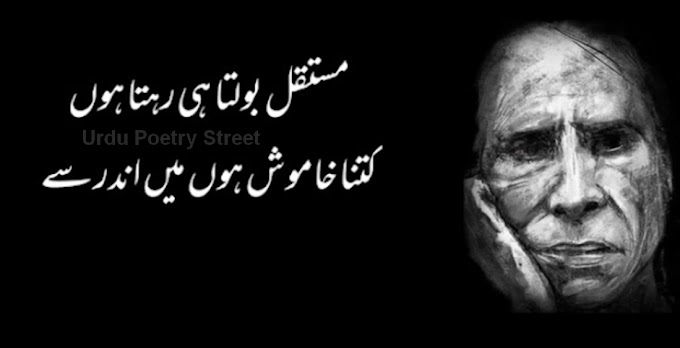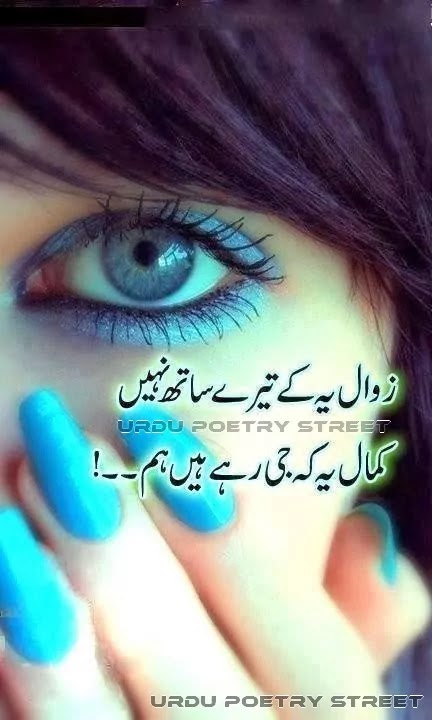Kaash Mjhy Bhi Kichan Se Ta Hayaat Na Ehl Kar Diya Jaey
Qasam Se Kabhi Nei Poochun Gi Mujhy Kiun Nikala
کاش مجھے بھی کچن سے تاحیات نا اہل کر دیا جائے
قسم سے کبھی نہیں پوچھونگی کہ مجھے کیوں نکالا؟
The Delightful World of Funny Poetry
In the rich tapestry of literature, poetry has long been celebrated for its ability to evoke profound emotions, provoke deep contemplation, and capture the essence of the human experience. Yet, amidst the sombre verses and poignant musings, there exists a delightful corner of the poetic realm—funny poetry. With its whimsical wordplay, clever wit, and irreverent humour, funny poetry offers a refreshing departure from the ordinary, inviting readers to embrace laughter and revel in the absurdities of life.
At its heart, funny poetry is a celebration of the lighter side of existence—a joyful romp through the absurd, the whimsical, and the downright hilarious. From lighthearted limericks to playful puns, funny poetry delights in subverting expectations, tickling the funny bone, and eliciting smiles and laughter from its audience. Whether through clever wordplay, exaggerated imagery, or absurd scenarios, funny poems offer a welcome respite from the stresses and strains of everyday life, inviting readers to indulge in the simple pleasure of a good chuckle.
One of the most enduring forms of funny poetry is the limerick—a short, five-line verse characterised by its bouncy rhythm, witty humour, and often risque subject matter. Limericks typically follow a strict AABBA rhyme scheme, with the first, second, and fifth lines rhyming with each other, and the third and fourth lines rhyming with each other. Known for their irreverent humour and playful language, limericks have been entertaining audiences for centuries with their witty wordplay and cheeky charm.
In addition to limericks, funny poetry encompasses a wide range of forms and styles, from humorous sonnets and satirical ballads to witty haiku and comedic couplets. Some poets use humour to explore serious themes or social issues, using satire and irony to shed light on the absurdities of the human condition. Others revel in the absurd and the surreal, crafting whimsical worlds populated by talking animals, mischievous imps, and larger-than-life characters.
Moreover, funny poetry has a long and illustrious history, with luminaries from across the ages contributing to its rich legacy. From the playful verses of Ogden Nash and Shel Silver Stein to the satirical wit of Dorothy Parker and Hilaire Belloc, funny poets have delighted audiences with their clever wordplay, irreverent humour, and keen observations of the world around them. Today, contemporary funny poets continue to carry on this tradition, using humour as a tool for self-expression, social commentary, and sheer entertainment.
Yet, beyond its entertainment value, funny poetry also serves a deeper purpose—it brings people together, fosters connection, and uplifts the spirit. In a world often fraught with tension and division, the shared experience of laughter transcends barriers of language, culture, and background, uniting us in a moment of joy and camaraderie. Whether recited at family gatherings, shared among friends, or performed on stage, funny poetry has the power to spark laughter, brighten spirits, and create lasting memories.
In conclusion, funny poetry is a delightful and essential aspect of the literary landscape—a whimsical oasis in the desert of seriousness and solemnity. With its clever wordplay, irreverent humour, and infectious laughter, funny poetry offers a welcome respite from the pressures of daily life, inviting readers to revel in the absurdities of the human experience and embrace the simple joy of a good laugh. So let us raise our voices in mirth and merriment, and celebrate the delightful world of funny poetry in all its whimsical glory.










